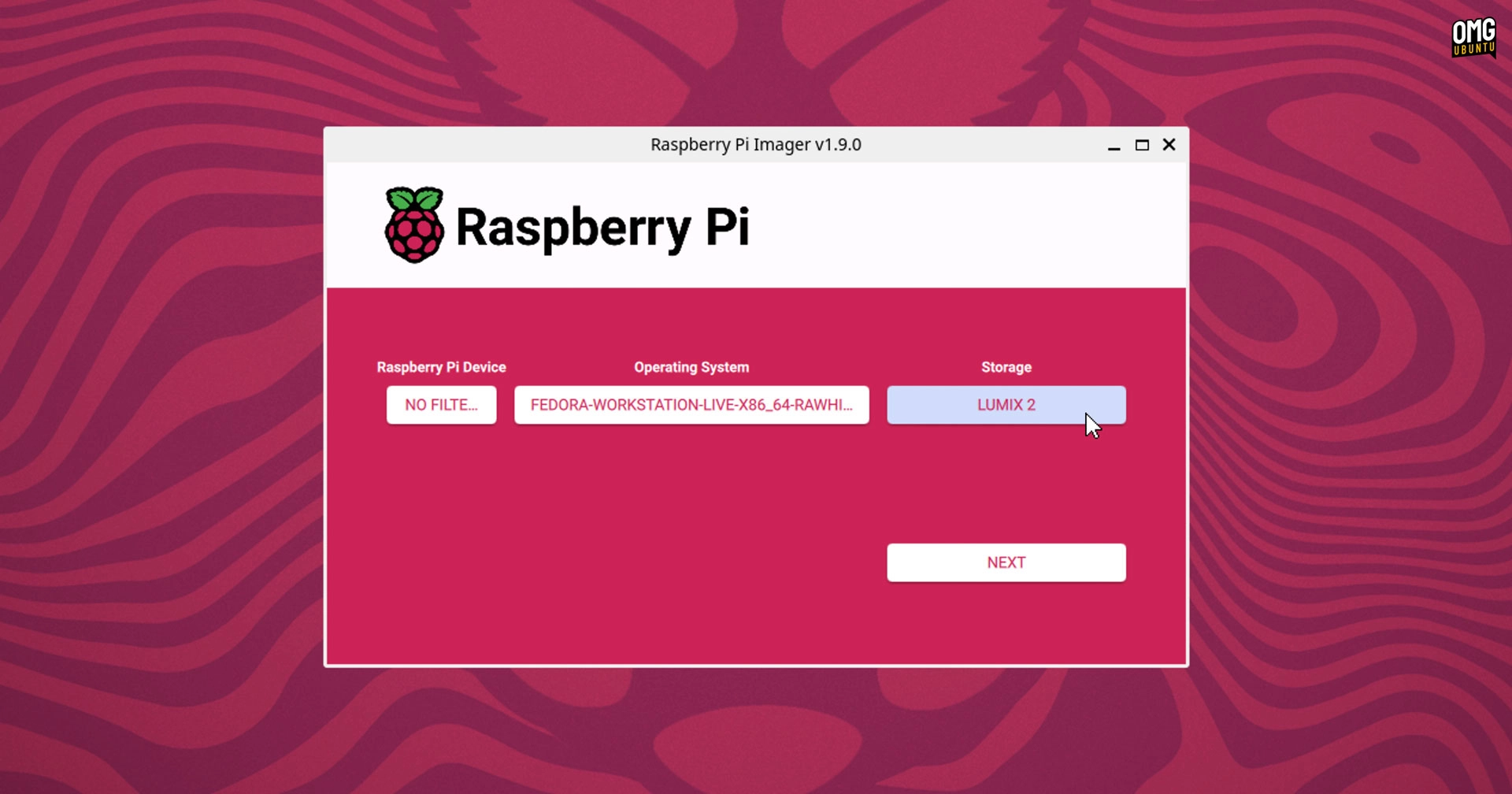The Raspberry Pi Imager is not just for Raspberry Pi owners. This handy tool simplifies the process of writing ISO, IMG, and other file formats to USB drives and SD cards.
Recently, a significant update was released for the Raspberry Pi Imager, bringing it up to version 1.9.
The tool, which is open-source and compatible across different platforms, has transitioned to using Qt 6.
This update leads to multiple enhancements in stability and introduces some visual upgrades. According to Raspberry Pi, the move to Qt 6 means users will notice “a slightly updated user interface across all supported platforms.”
Comparing the Qt 6 UI to the Qt 5 one used in previous release, the only changes do appear “light”. The corners of buttons are now rounded, and there is improved hover styling when mousing through the devices/os/storage dialogs.
But the biggest change is in packaging.
Raspberry Pi Imager is now available as an AppImage on Linux. This makes the tool a portable option since you can only need to download the AppImage once to run it on all your Linux machines without the need for native system packages on each.
Raspberry Pi OS is introducing a new package that simplifies the installation of AppImages.
Additional updates in Raspberry Pi Imager 1.9 include:
- Message alerts when no storage devices are detected
- Username validation within the OS customization feature
- A new
--disable-ejectflag for the command-line interface - Resolved timeout issues on systems with numerous loop mounts like snaps
- Support for localectl in latest Debian/Ubuntu versions
- Preference for native system cryptography libraries, such as GnuTLS on Linux
- Package signing now utilizes a new Raspberry Pi Ltd key
- Support for BCM2712d0
- Enhanced translations for French, Italian, and Simplified Chinese languages
The updated Raspberry Pi Imager is available to download for Windows, macOS, and Linux from the official Raspberry Pi website, which also includes a DEB file for Ubuntu. The latest AppImages can be obtained from the Github release page under the ‘assets’ section.
The latest Linux AppImage now supports both Intel/AMD and ARM64 architectures. With this update, the Raspberry Pi Imager has discontinued support for 32-bit ARM and 32-bit Intel/AMD systems. Additionally, version 1.9 is compatible only with Windows 10 or newer and macOS 11 or later on other platforms.
